EU Council Approves Strategic Agenda to Strengthen EU–India Partnership
EU Council Approves Strategic Agenda: On 20 October 2025, the EU Council formally adopted conclusions endorsing the “New Strategic EU–India Agenda”. The document emphasises shared goals between the EU and India in prosperity and sustainability, technology and innovation, security and defence, as well as connectivity and global issues. It also calls for a balanced, ambitious, mutually‑beneficial Free Trade Agreement (FTA) to be finalised by the end of 2025, with enhanced market access, removal of trade barriers and provisions on sustainable development.
Economic and Trade Implications
Free Trade Agreement on the Horizon
The agenda explicitly welcomes efforts to conclude the India–EU FTA by end‑2025, identifying it as a major deliverable of the partnership. The European Investment Bank (EIB) has noted that trade talks between India and the EU are already boosting long‑term investor confidence, reflecting stronger economic signals.
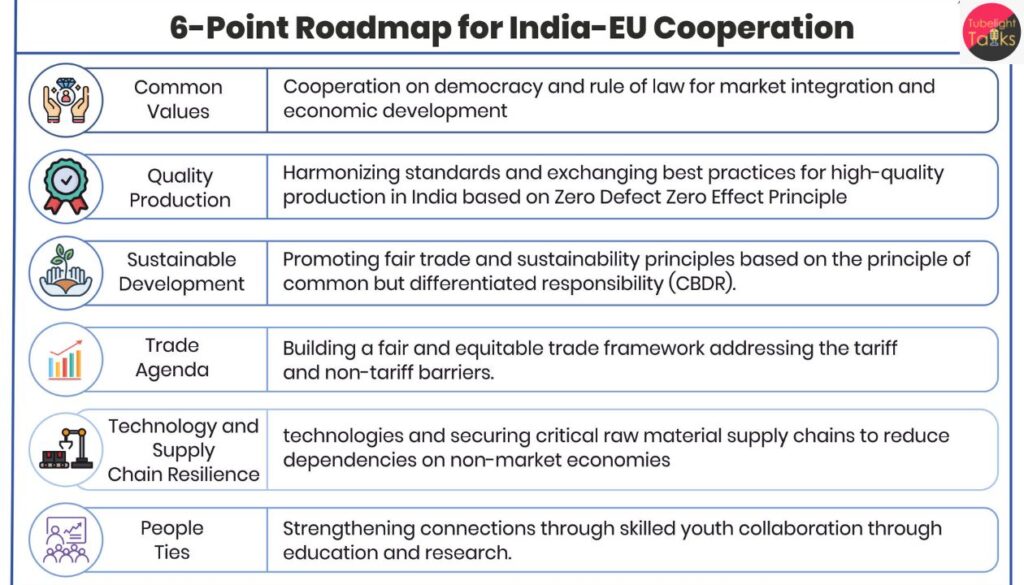
Technology, Innovation and Supply Chains
Technology collaboration is a central pillar. The agenda prioritises digital public infrastructure, semiconductors, secure telecommunication networks and other emerging technologies. Both sides also aim to deepen industrial cooperation, particularly in defence industry, clean energy, connectivity projects like the India‑Middle East‑Europe corridor and green transition frameworks.
Defence, Security and Geopolitical Context
Security and Defence Cooperation
In light of evolving global strategic dynamics, the agenda places greater emphasis on security and defence. The EU and India will work towards an EU–India Security & Defence Partnership, with potential defence‑industrial collaboration and a Security of Information Agreement enabling classified information exchange. The agenda also recognises that India and the EU share responsibility for upholding multilateralism, a rules‑based international order and the UN Charter.
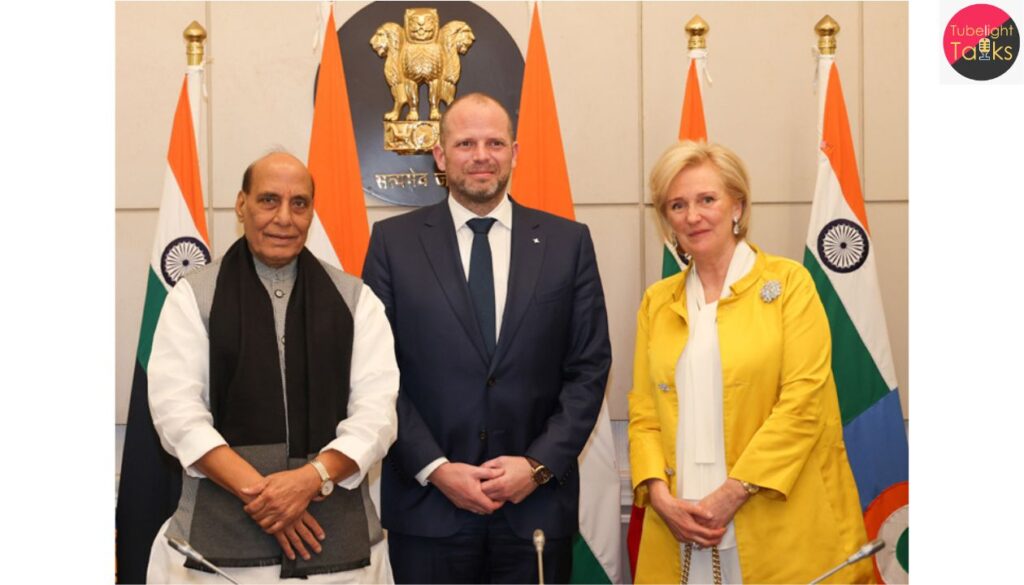
Strategic Shifts in a Complex World
Europe’s outreach to India comes amid broader geopolitical shifts: supply‑chain realignment, concerns about over‑reliance on particular states, and the evolving Indo‑Pacific security architecture. Analysts suggest that this agenda reflects the EU’s interest in diversifying strategic partnerships and recognising India’s growing global role.
Implementation Challenges and Next Steps
Negotiation Hurdles
While the agenda is ambitious, implementing it will not be without challenge. The FTA negotiations face complex issues such as automobile and dairy trade barriers, sustainability standards, data protection regimes and aligning regulatory frameworks.
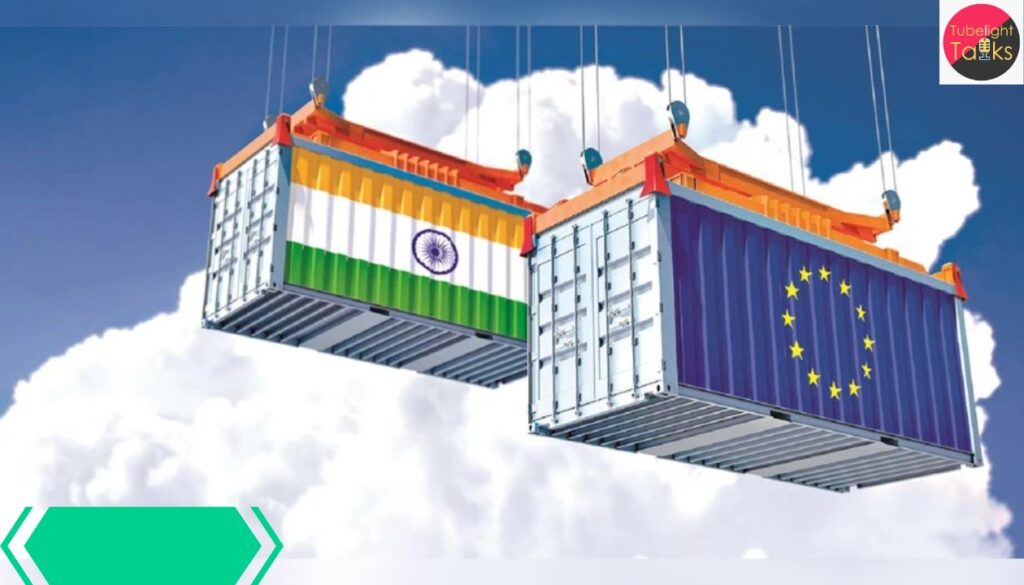
Institutional and Policy Alignment
For the agenda to succeed, India and the EU must harmonise key institutional frameworks on investment protection, intellectual property, digital regulation and defence industry cooperation. The agenda explicitly invites the EU Commission to take forward implementation.
Timelines and Key Milestones
With a possible India–EU Summit anticipated in early 2026, both sides appear set to intensify high‑level engagement. The ratification process within the EU and final rounds of trade talks will be closely watched.
Values, Sustainability and Societal Impact
The agenda reaffirms democratic values, human rights, public‑interest standards and environmental sustainability as intrinsic parts of the partnership.
As the press release states,
“The promotion and protection of democratic values … is an intrinsic part of the EU–India strategic agenda.”
This suggests that economic and security cooperation will also carry a normative dimension—one rooted in governance and shared values.
Ethical Foundations for Global Partnerships
Amid growing strategic alignments and technology‑driven collaborations, it’s crucial to examine the values that guide international partnerships. The teachings of Sant Rampal Ji Maharaj offer a timely reminder that sustainable progress rests not only on economic agreements or diplomatic frameworks, but on mutual respect, ethical responsibility, and inclusive growth. As India and the EU chart a broader strategic path, the focus must extend beyond transactional gains. When nations cooperate with a shared vision of human welfare and long‑term harmony, such partnerships evolve from formal agreements into genuine instruments of collective upliftment—anchoring strategy in conscience.
What Lies Ahead
With the framework now approved, India and the EU face the real work of turning strategy into action. Whether through joint innovation centres, defence‑industrial tie‑ups, or a landmark trade pact, the next 12 to 18 months will test the depth of the partnership. If successful, this agenda could reshape not only India–EU relations but also the broader dynamics of global trade, technology and security.
Also Read: EU Council Approves Strategic Roadmap to Strengthen EU‑India Ties
FAQs: EU–India Strategic Agenda
Q1. What did the EU Council approve on 20 October 2025?
They approved conclusions endorsing the New Strategic EU–India Agenda covering trade, technology, security and connectivity.
Q2. What are the key focus areas of the agenda?
Prosperity and sustainability; technology and innovation; security and defence; connectivity and global issues.
Q3. When is the Free Trade Agreement expected to conclude?
Both India and the EU aim to finalise the FTA by end of 2025.
Q4. What kind of defence cooperation is envisioned?
The agenda includes plans for a Security & Defence Partnership, defence‑industrial collaboration and a Security of Information Agreement.
Q5. Why is this agenda significant now?
With global power shifts, supply‑chain instability and evolving security dynamics, the India–EU partnership offers strategic diversification and shared values.
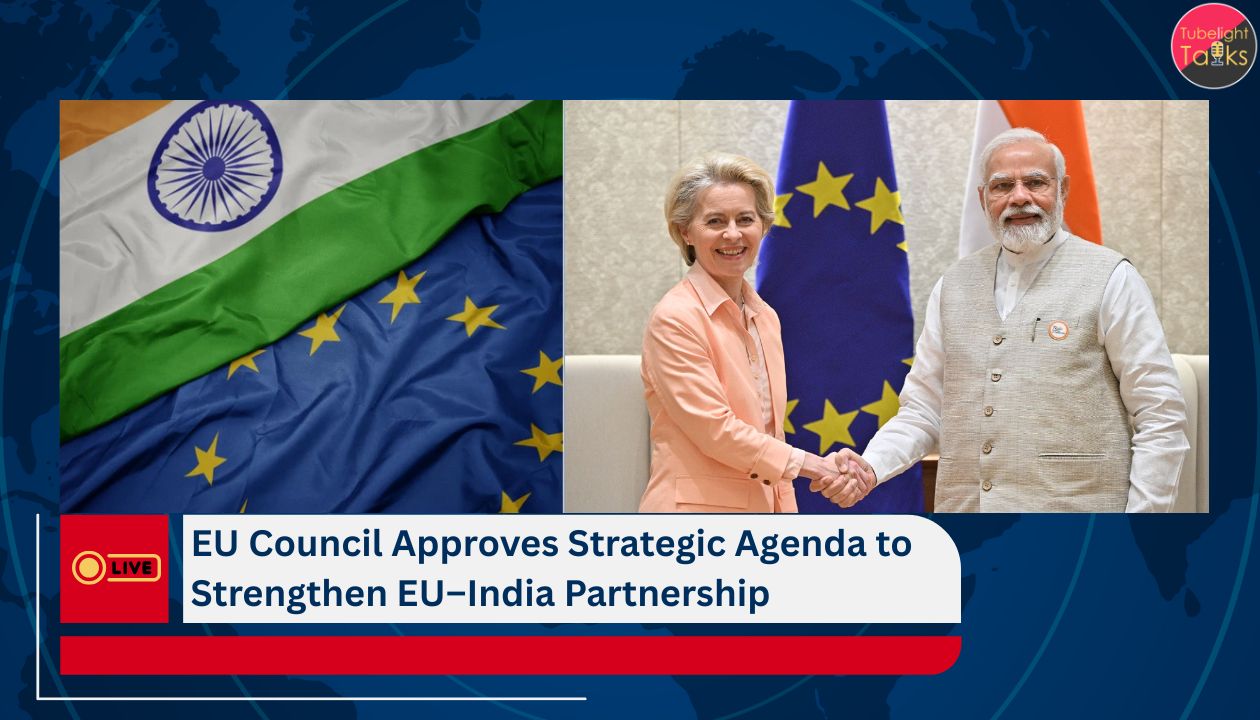


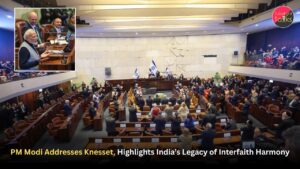







Discussion (0)